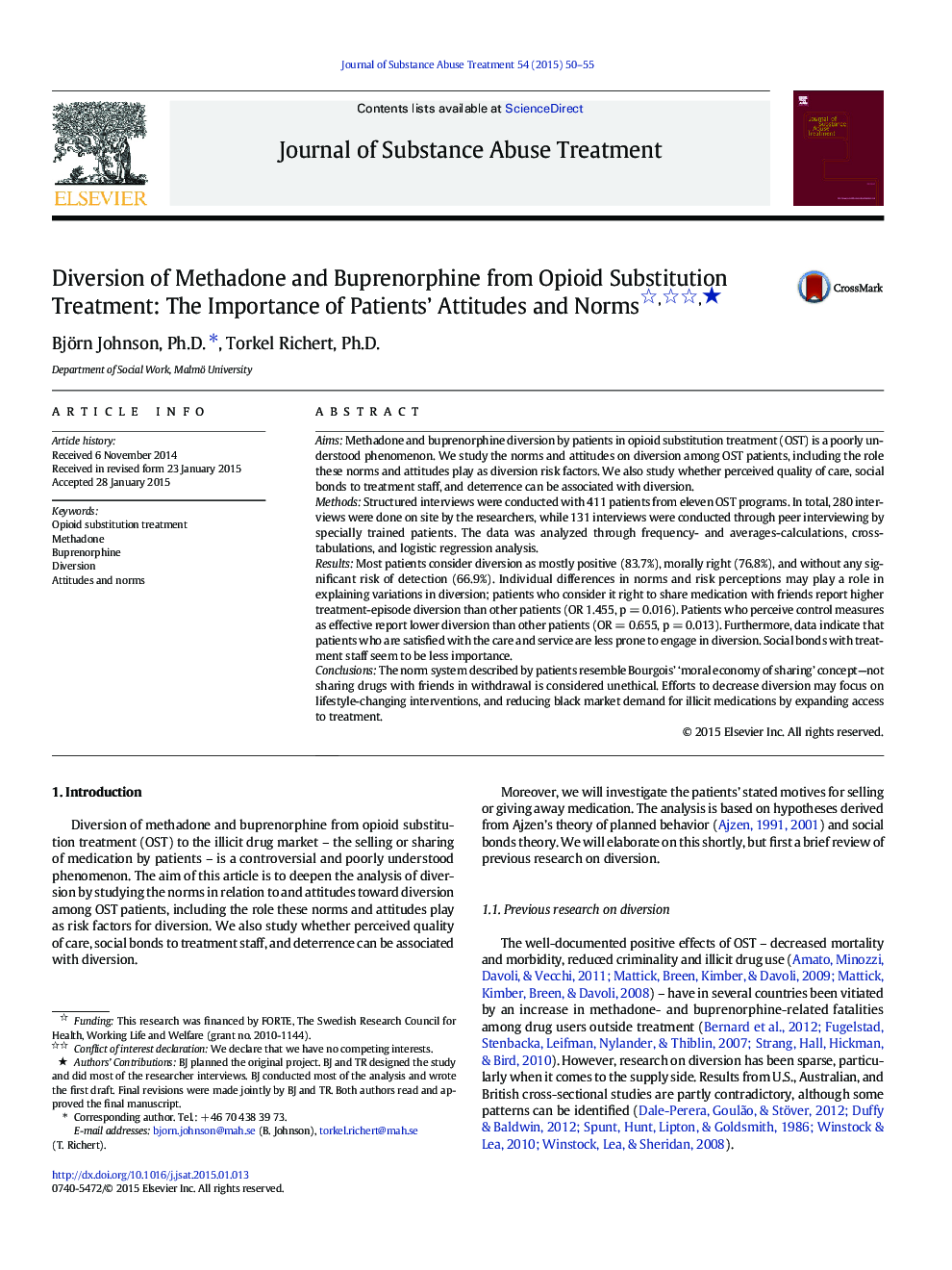| کد مقاله | کد نشریه | سال انتشار | مقاله انگلیسی | نسخه تمام متن |
|---|---|---|---|---|
| 328820 | 543414 | 2015 | 6 صفحه PDF | دانلود رایگان |
• We study the norms and attitudes on diversion among opioid substitution patients.
• Most patients see diversion as morally right and consider the risk of detection as low.
• Individual differences in norms may play a role in explaining variations in diversion.
• Patients who are satisfied with the care and service are less prone to engage in diversion.
• Efforts to decrease diversion may focus on reducing illicit demand and on lifestyle-changing interventions.
AimsMethadone and buprenorphine diversion by patients in opioid substitution treatment (OST) is a poorly understood phenomenon. We study the norms and attitudes on diversion among OST patients, including the role these norms and attitudes play as diversion risk factors. We also study whether perceived quality of care, social bonds to treatment staff, and deterrence can be associated with diversion.MethodsStructured interviews were conducted with 411 patients from eleven OST programs. In total, 280 interviews were done on site by the researchers, while 131 interviews were conducted through peer interviewing by specially trained patients. The data was analyzed through frequency- and averages-calculations, cross-tabulations, and logistic regression analysis.ResultsMost patients consider diversion as mostly positive (83.7%), morally right (76.8%), and without any significant risk of detection (66.9%). Individual differences in norms and risk perceptions may play a role in explaining variations in diversion; patients who consider it right to share medication with friends report higher treatment-episode diversion than other patients (OR 1.455, p = 0.016). Patients who perceive control measures as effective report lower diversion than other patients (OR = 0.655, p = 0.013). Furthermore, data indicate that patients who are satisfied with the care and service are less prone to engage in diversion. Social bonds with treatment staff seem to be less importance.ConclusionsThe norm system described by patients resemble Bourgois’ ‘moral economy of sharing’ concept—not sharing drugs with friends in withdrawal is considered unethical. Efforts to decrease diversion may focus on lifestyle-changing interventions, and reducing black market demand for illicit medications by expanding access to treatment.
Journal: Journal of Substance Abuse Treatment - Volume 54, July 2015, Pages 50–55
